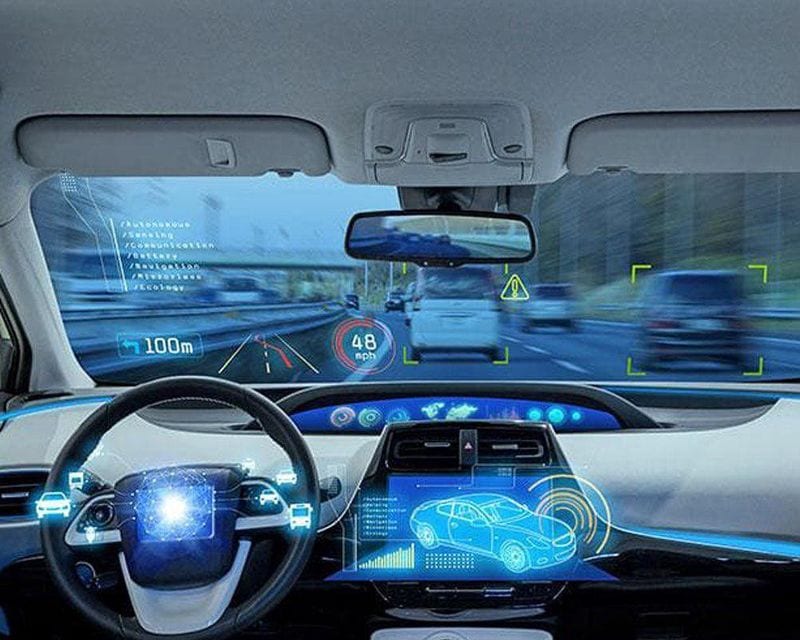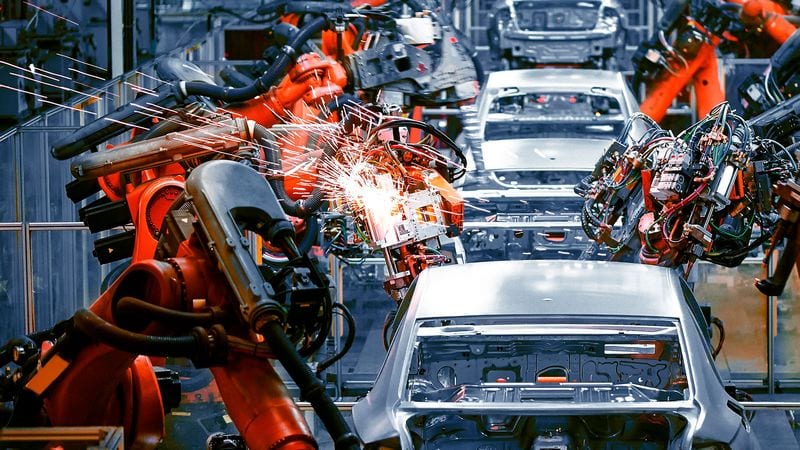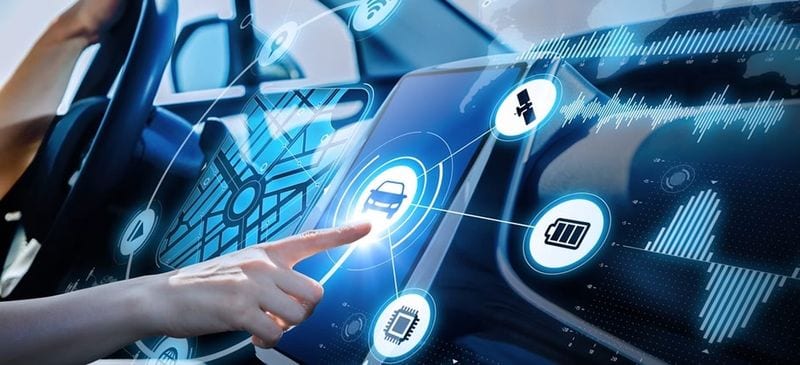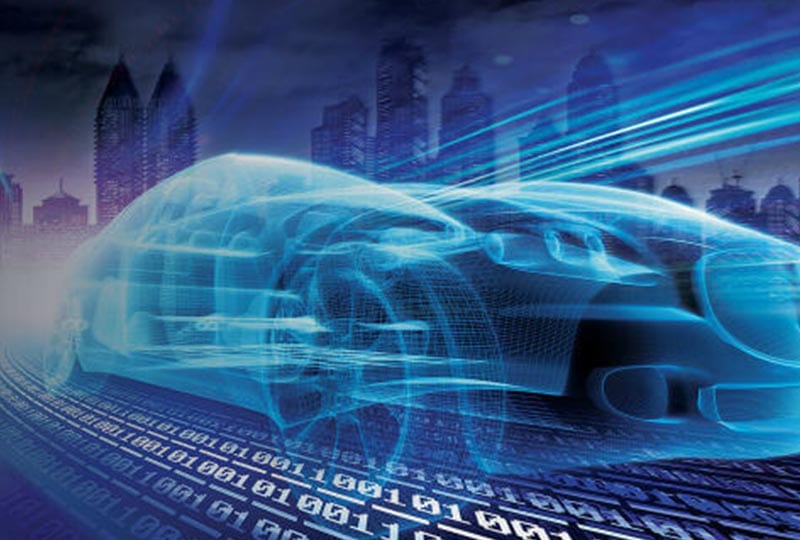Introduction
The world of technology brought upon as a new digital era. For an average person nowadays, it is difficult to imagine life without the constantly evolving tech in all areas of business, entertainment, transport, education, etc. People have embraced the widespread use of digital transformation with open arms, and because of that, the world is now a much better and more connected place.
The automotive industry is no different. On the contrary, it is embracing new and exciting technologies very quickly to keep up with the evolving trends in the broader digital world. The customers therefore get enhanced experience and service with every new generation of vehicles.
Speaking of vehicles, they have long stopped being just a simple means of transportation from point A to point B. They have evolved into complex moving machines that have tons of different tech inside, sensors, and computers designed and developed for practically all features a vehicle has.
The most revolutionary and life-changing upgrades came after the introduction of blockchain technology. Blockchain is also used in the cryptocurrency business. If you are interested in that and want to learn more and earn something on the side, check out blogherald.com. Regarding this article, read on to learn more about the implementation of these systems in the auto industry.
What is blockchain and how did it enter the auto industry?

Blockchain is a distributed database. This system hosts a constantly growing number of records that are stored in blocks, instead of the more traditional single files. The technology revolutionized the markets by using peer-to-peer networking, in which each node stores and transmits the data through encrypted channels. Blockchain is therefore thought of as the modern business infrastructure that shows transparency and trustworthiness.
When the automotive industry is considered, blockchain became prominent the same way that artificial intelligence (AI), machine learning, and high-performance GPS and sensors did before it. Since they are so useful and easy enough to implement, talented people saw the benefits and decided to use it in vehicle production. Nothing was the same after.
After Mobility Open Blockchain Initiative, or MOBI for short was launched between major brands like BMW, General Motors, and Ford transit, the leading blockchain startups, organizations including IBM, Accenture, and Cosensyn, as well as academic institutions in May of 2018, the wider automotive sector adopted blockchain.
MOBI came to be in hopes of improving the quality of life, which is one of the most important aspects of any industry. In February of 2019, an event took place that promoted the development of common standards in the blockchain application.
Since then, all major automotive industries have been using it greatly, upgrading their supply chain, service, security, manufacture, insurance, and much more. Partnerships between car manufacturers and blockchain startups happened, mainly between GM, Porsche, BMW, and Spring Labs, VeChain Thor. Following is an overview of all the benefits blockchain has brought to the industry.
1. Supply chain

The supply chain in the auto industry is a complex topic. There are numerous types of complicated hardware, software and firmware distributors, as well as dealers, agencies, and other companies involved. The chain also manages the transfer of products which costs a fortune, mostly because of the intermediaries.
Here, blockchain offers full transparency and optimizes the shipments of parts and vehicles, all while providing smooth integration of contacts, inventory, pricing, and payments, and probably most importantly, logistics info. Such a high level of transparency was unheard of before blockchain, which is why it has become so integral.
2. Process of Manufacturing
In the manufacturing process, blockchain can prevent common issues very effectively. It does so by giving every part of every vehicle its unique identity number. This is also immensely helpful with orders and recalls.
3. Autonomous Vehicles

The technology is so diverse that it has also helped the industry with autonomous vehicles. These vehicles are steadily rising in demand. They have autopilot features that allow them to park themselves, and even perform other complicated tasks. All of it is done through instructing the digital computer with commands, and we have nothing but blockchain to thank for it.
4. Tracking and Identification
Thanks to the RFID tags on blockchain-manufactured parts for vehicles, every component of a car can be easily verified for authenticity if need be. This previously tedious job has become much more efficient and faster due to the implementation of blockchain.
5. Transfer of Ownership
Since it provides maximum transparency and speeds up most processes, blockchain also helps with the transfer and change of car ownership. It uses a smart contract made for the seller and buyer to enforce the transaction without an intermediary, saving both money and time.
6. Automated Vehicle Maintenance
Cars that use blockchain are equipped with an on-board computer, for example, the Engine Control Unit (EDU). This, and others like it, all contain error logs that help the service professionals quickly navigate through the issues, diagnose the problem, and then make the necessary repairs. Everyone’s time is saved with this, which is always a huge plus. Maintenance status is easily trackable without visiting a mechanic station, which also means no towing is needed.
7. Vehicle Insurance

It is no secret that most insurance policies and claims are semi-fraudulent at best. There are dozens of hidden tricks these firms use to increase operational costs and repairs, sucking away their customers’ hard-earned money. This even makes some people not get insurance, which is outright dangerous.
Blockchain addresses this problem by enabling logging that is not manipulative, but completely transparent. The vehicle’s sensor data is stored on a decentralized network, and blockchain provides insurance companies with the locations of the driver, durations of the drives, acceleration and braking behaviors and patterns, speed, and other crucial info.
8. Vehicle Security
We already mentioned more and more vehicles are becoming autonomous. This also makes them more connected and therefore susceptible to cyber-attacks. To combat this, blockchain uses strong cryptography that cannot fall victim to reverse engineering.
9. Financing
More and more cryptocurrencies are appearing and becoming prominent all the time. They have long ago made a name for themselves in all areas of business and economy, meaning the automotive industry also uses it for payments. Paying for on-the-go entertainment in the car’s infotainment system can now be done through blockchain-enabled apps.

